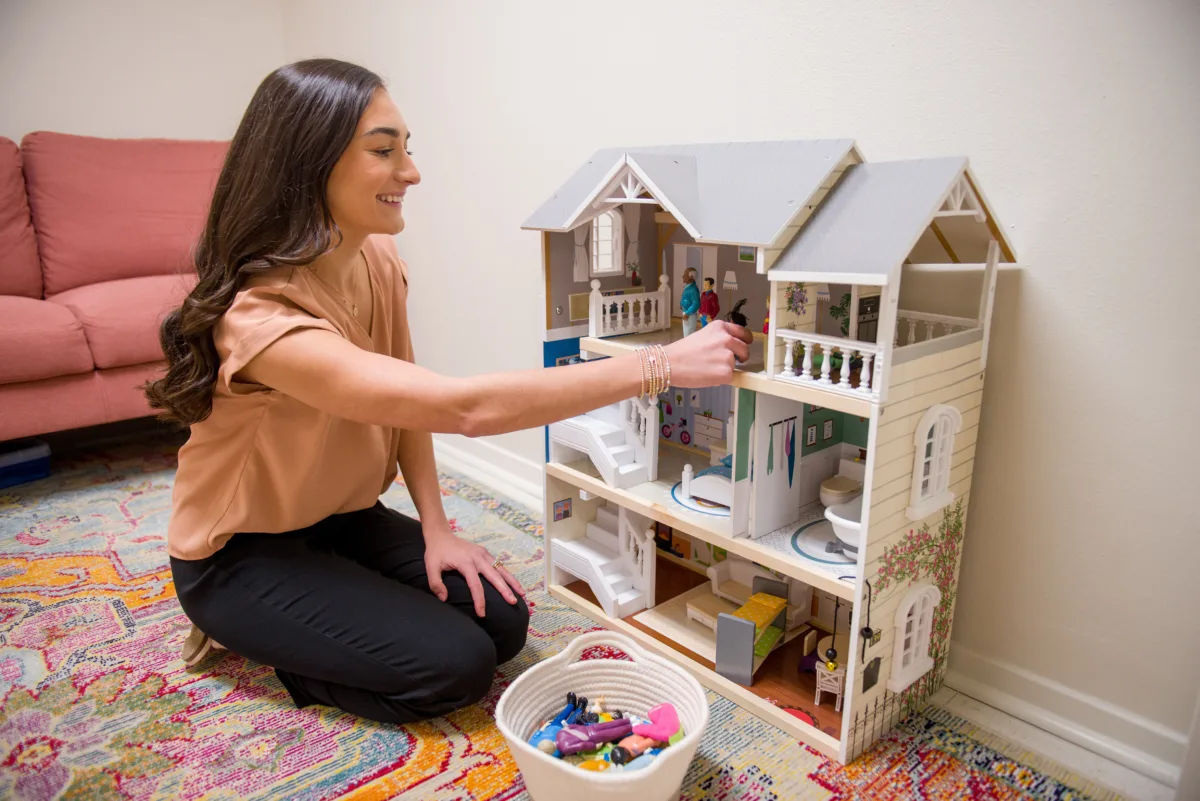
Play is a child’s first language. While adults may use their words to process through their emotions and experiences, a child will use the toys in front of them. The American Academy of Pediatrics states, “Play allows children to use their creativity while developing their imagination, dexterity, and physical, cognitive, and emotional strength. Play is important to healthy brain development.” Play is not just something that kids do – it is a necessity for their healthy growth and development. Child-initiated play that is self-led, self-directed, and self-initiated is innate in children and it serves critical developmental functions in the child. The beauty of play in childhood is that it is extremely simple, but it also allows them to practice complex pieces of their development. They negotiate and practice everything they need to develop. As clinicians, if we don’t value at our deepest levels how powerful just playing is for children, then we are undermining the effectiveness and significance of what is taking place in our playrooms.
In a therapeutic context, play allows children to express themselves: their needs, feelings, desires, wishes, struggles, challenges, etc. It allows them to make sense of their world and essentially, to communicate it. It is an age appropriate and developmentally appropriate model for children. As Gary Landreth says, “Birds fly, fish swim, children play”.
How does play therapy benefit my child?
When children play, they learn how to:
- Interact with others
- Engage in conflict
- Problem solve
- Relieve stress
- Refine behaviors that are not conducive to social interaction
- Stimulate creative thinking
- Expand self-expression
Core beliefs of play therapy that parents and caregivers can begin utilizing:
“Never do for a child that which he can do for himself.”
Why? It creates an opportunity for the child to practice problem-solving, resourcefulness, renaissance, and the ability to figure out what to do in order to believe in themselves. Just like kids aren’t given control, they are not given opportunities to do things on their own. They may be capable of getting the box down from the shelf even though it is too high, be able to figure out how to cock back the gun in order to make it shoot, but we never let them. Extending opportunities for children to come up with solutions and feel capable is a skill that increases their self-efficacy, and it will carry them far into adulthood.
“Noticing children is a powerful builder of self-esteem.”
Giving children our undivided attention is extremely powerful. Noticing them increases their self-esteem – a increasing issue for children today. Self-esteem is one of the quickest fixes in the playroom because we notice them. We are communicating that we see them, we hear them, we care for them, and we are not leaving them. Getting down on a child’s level, both physically and emotionally, is a powerful builder of self-esteem.
When a child is drowning, it is not the time to teach him to swim.”
When emotions are big, it is not the time to try to teach a lesson. Children have to regulate before you can rationalize with them. Asking a child “why” when they are in a state of dysregulation will almost never be helpful. They don’t know. They are acting off of their feelings because children live in their feelings. Helping your child regulate through co-regulation or giving them the space to calm down on their own can be one of the best things to do during a meltdown.
Written by Emily T., PLPC
